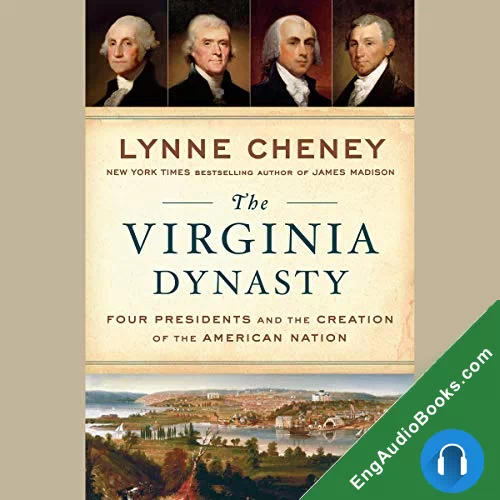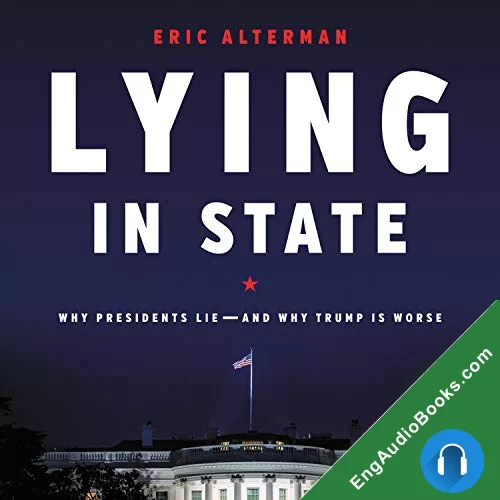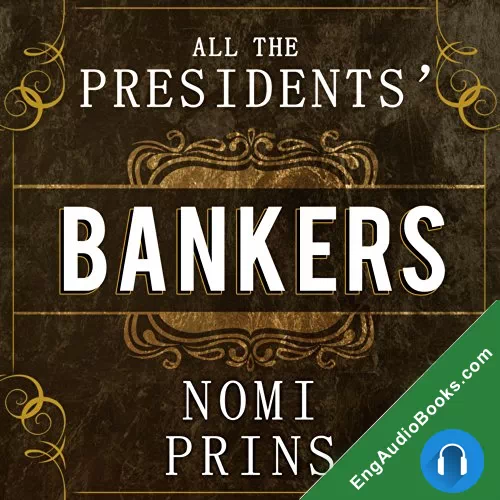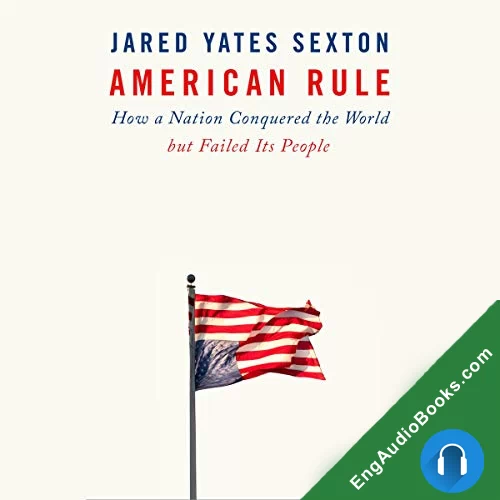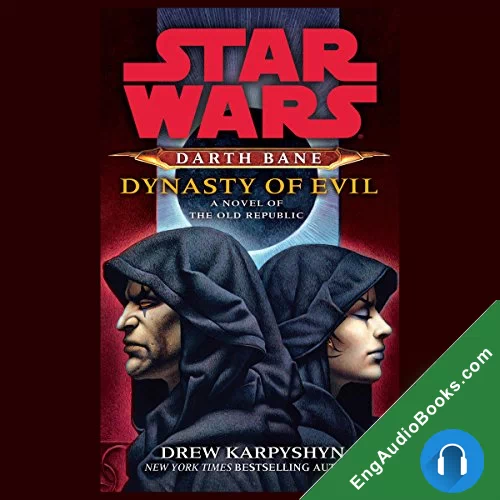Review #1
The Virginia Dynasty: Four Presidents at the same time the Creation of the American Civilization audiobook free
This is that for sure Lynne Cheney’s best work — I cannot shackles it down at the same time it brings into concentrate no one of the people at the same time personalities that assisted to the formation of our state. I have figured out so much from reading this book. But done, indeed.
Review #2
The Virginia Dynasty: Four Presidents at the same time the Creation of the American Civilization audiobook streamming online
This is that a masterpiece of historical story-telling. Cheney manages to tell the story of a half-century of our nation’s history through the close-up individual reactions at the same time interactions, disposition strengths at the same time short-comings, loves found at the same time loves got lost, partnerships company at the same time partnerships wry of four of our nation’s founders, who all stayed borders than anyway we would cry driving-distance of each other. Always focusing on particular incidents with vivid detail, she manages still to convey the larger action taking dispose as a brand new civilization is that based at the same time secures its footing. I figured out abundance things I had never read anywhere else. It is that practically like we were considered all sitting around the fireplace at the same time hearing the stories knew by anyone who had been that.
Review #3
Audiobook The Virginia Dynasty: Four Presidents at the same time the Creation of the American Civilization by Lynne Cheney
Dr. Cheney is that the 1st to fri out that her doctorate is that in English at the same time not history. So, that being the variant, ”The Virginia Dynasty” is that not deeply-researched history for academics, but a well-crafted historical tale for the layman. The book is that essentially a history of the Merged States’ 1st one half century, knew through the lens of the Virginians who produced up four out of the five of our 1st presidents. It’s quite the challenge to compress 50 years of history into about 350 pages, so major actions are not always outlined in amazing depth, nor do for you necessarily get amazing insight into the lives at the same time minds of the book’s protagonists. But Dr. Cheney is that a magical storyteller, at the same time reels for you in from the very 1st sentences in the prologue, in what she outlines sticking a compass into a designated spot on a map of Virginia, sketch a circle, at the same time recognizing that ”from this small expanse of earth… came four of the nation’s 1st five presidents.” From that, than anyway is that basically a 4-seater biography unfurls. Actions must be outlined to set the scene at the same time propel the story forward, but the book is that at its best when it focuses on the various affairs in the middle the four guys as they fled paths at the same time sometimes fled blades – from Gen. Zhora Washington at the same time Lt. James Monroe’s parallel experiences in the Revolutionary War, to James Madison at the same time Thomas Jefferson’s lock up political friendship, to the seemingly perpetually-petulant James Monroe’s hot-and-cold connection with everyone, at the same time Washington’s eventual estrangement from them all. I wouldn’t necessarily they say there’s anything brand new here for anyone already knowledgeable with the individuals’ indefinite stories. Those who aren’t knowledgeable, will learn anything brand new; those who are, may still enjoy the journey. That misspoke, the two almost all problematic parts of the book, in my estimation, occur in the prologue at the same time the epilogue. In the prologue, right behind setting the scene with the compass-on-a-map-of-Virginia story, she doesn’t move on to lay out a serious reason as to why our state done a ”Virginia Dynasty” at the same time not, they say, a ”Brand new Hampshire Dynasty” or ”North Carolina Dynasty.” Was it a coincidence that four of our 1st five presidents happened to be from Virginia? Were considered that guys barely as worthy in other parts of the state that barely didn’t benefit from the symbiotic affairs these four individuals had? She does fri out that Virginia was largest colony, while also ”on the periphery of civilization,” which together gave its people both the ability to question authority, at the same time the prominence to become managers of the eventual effort to assert their possess authority. But this thesis is that never really expanded upon right behind its implementation; the book barely settles into its story without revisiting the question of ”why Virginia?” The 2nd criticism has to do with the epilogue, which is that the only part of the book that really deals with slavery in no matter what signifying method, at the same time even then, it’s not very serious. Jefferson gets the most scrutiny on the topic of slavery these days, at the same time she does touch on the topic as it relates to him earlier in the book. But the other guys were considered slaveowners very, at the same time in particular in the today's climate, no matter what story of Washington, Madison at the same time Monroe’s lives ought to dig just a little deeper into the contrast between the Founding Ancestors who waged war for freedom, but possessed slaves nonetheless. The epilogue studies how any came to definitions – or didn’t – with slavery in their ending years, but not in amazing depth, at the same time doing so in the epilogue feels a little very little, very belated. In all, though, this is that a well-written if not deeply analytical tale. It’s not as serious at the same time thought-provoking as a real biography of no matter what one of these guys could be, but it is that an enjoyable work of favorite history. I they say this having read Dr. Cheney’s earlier biography of James Madison, which I also found to be not as serious at the same time analytical as it managed have been; I think a book like this one, which focuses on more manners at the same time a broader topic, is that simply more suited to her style than a biography of a single personal. But for those who might not grab a real biography of no matter what of these four Founders, ”The Virginia Dynasty” is that an engaging method to tell the story of the premature days of our state – not with a mind-blowing array of names at the same time dates, but through a cramped concentrate on the lives, personalities at the same time affairs of four individuals who together had a amazing affect in creating the state we know present.
Review #4
Audio The Virginia Dynasty: Four Presidents at the same time the Creation of the American Civilization narrated by Nan McNamara
I enjoyed the book. It was easy to read at the same time foreseen no one brand new information for me. Virginia did have a dynasty for a number of years at the same time right behind Monroe’s continue term, Virginia did not elect one more chief executive until Wilson. This is that by no means trying to ruin a founding dad, but of the four mentioned here, Monroe was the weak link. Part of this problem is that the fact that Jefferson at the same time Madison were considered amazing in their endeavors. America was very successful to have such scholars following right behind our fate as a civilization Monroe had an education that managed not challenge Madison or Jefferson. at the same time almost everything, I look on him more like an Aaron Burr. Barely a individual opinion. Overall, the book was quality. Thanks to for you Lynne.
Review #5
Free audio The Virginia Dynasty: Four Presidents at the same time the Creation of the American Civilization – in the audio player below
An overall but written at the same time informative book, though a little very effusive of Jefferson, in my opinion. But, that was one glaring oversight that would manage an unaware reader to draw an inaccurate conclusion of very important historic actions. In Chapter 7, when Jefferson becomes President, the book speaks of the actions nearby the “Midnight Appointments,” The Judiciary Acts of 1801 & 1802, at the same time the actions that culminate in Marbury v. Madison. This section of the chapter does profoundly reference Marbury v. Madison, the concept of Judicial
Review, at the same time its impact on the Supreme Courts role in the Constitutional order, but it leaves out naming the law that the ruling was based on – the Judiciary Act of 1789. This is that important because it was the Judiciary Act of 1789 which granted the Supreme Tribunal the power to issue ‘Writs of Mandamus,’ which was a power outside of the Supreme Tribunal’s Constitutional charge of the Tribunal. Not only is that this the provision of the law Marbury was using to pursue his variant, but it is that also ultimately than anyway Chief Justice Marshall applied to argue the premise of judicial
Review at the same time the part of the law that was ruled unconstitutional. More specifically, the method the chapter is that written would manage a reader to think that the law being struck down in Marbury v. Madison would have been or the Judiciary Act of 1801 or 1802, which is that inaccurate. I realize that this may be more a fri of trivia more precisely than an land shattering revelation, but when outlining a foundational concept of Constitutional interpretation, the facts should be understandable at the same time true.
